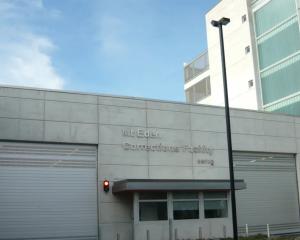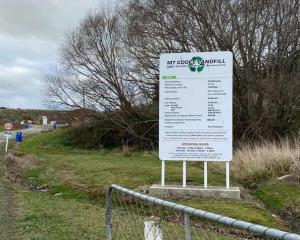
While the second quarterly Business South survey for the year indicates a growing confidence the regional economy will continue to improve, there remains a wariness about the effects of increased cost pressures, labour market constraints and compliance requirements, which are seen as significant barriers to growth and productivity for businesses.
The survey attracted responses from 377 businesses.
Of the responders, 62% expected the southern economy to be the same or substantially better in 12 months, up 10% on the last quarter, and 82% of businesses in the region expected their own earnings to be the same or better in the next 12 months, also up 10% on the last quarter.
Just on 73% of small- and medium-sized enterprises (SMEs) hoped to invest in their businesses over the next 12 months, compared with 88% among larger businesses, while 47% of SMEs planned to hire staff over the next three months, compared with 80% of larger businesses.
Two businesses in the hospitality sector raised the same worries about increased labour costs when spoken to by the Otago Daily Times.
Andre Shi, owner of Dunedin’s Vault 21 restaurant in the Octagon, said he had adjusted his business model to adapt to the high labour costs.
"Increased labour costs have certainly made having a healthy bottom line a lot more difficult."
Despite that, Vault 21 is looking to employ more staff over the next 12 months.
"We are very lucky to have a great number of students as our base workforce for front-of-house staff. We normally train the new employees from scratch. However, we find it is difficult to find chefs."
While Vault 21 had bounced back to a pre-Covid level of bookings, customers over the past two months had been more conservative with their spending, he said.
"The hospitality business has become a lot more challenging with the pressures from both ends [higher wages and lower-spend per head]."
Chris Ramsay, chief executive of the Invercargill Licensing Trust (ILT) which operates 23 hospitality businesses, had seen a slowdown in patronage and spending since the beginning of May.
While that could be attributed to the change in seasons, the rising cost of living meant the effects might be "a little longer lasting than usual", he said.
The increased labour costs were also impacting the ILT’s bottom line.
"Because of the cost to do business on public holidays now, it costs our organisation over $60,000 extra in wages per day to operate on a public holiday. Extrapolate that out over the number of public holidays in a year and we’re looking at a very big number," Mr Ramsay said.
"Some of this is our own doing, as we are determined to be an employer that looks after its people well. It means that we are already seriously reviewing which businesses we open in the lead-up to a public holiday."
Recognising the difficulty in attracting skilled chefs from the local market, last year the ILT adopted a policy of searching overseas.
"Our experience from that process wasn’t so much around any forms of limits or restrictions, but rather how painfully slow Immigration NZ were to process those that we wanted to employ. So, without being too cynical, we hope that the changes made to improve our ability to employ migrant workers is matched with Immigration NZ’s ability to speedily process them and get them in the country," Mr Ramsay said.
The government recently announced changes to the Skilled Migrant Category and Accredited Employer Work Visa. These changes, to be implemented in October, mean there will be no limit on the number of highly skilled workers allowed into the country.
While Mr Ramsay is bullish about the future of the hospitality industry, he has fears for smaller operators.
"Any drop in revenues associated with the recession will be keenly felt by those that need cash flow the most. I’m generally an optimist, but it’s hard not to see the next 12 months continuing to be challenging."
The tourism sector is another looking ahead with uncertainty.
Larnach Castle managing director Norcombe Barker believes the tourism industry cannot look to pre-Covid levels as something to aspire to again.
"Labour is an essential part of the service industry along with inflationary costs. We cannot compare to pre-Covid times with a lot of variables in play - the likes of airline capacity and cost.
"It’s very hard to predict the future, as the scope of uncertainty is higher than it’s ever been. Our market is a mix - after three good years, our domestic market is now down, but internationally, the likes of China [are] back online.
"I don’t think it will ever be the same as pre-Covid and we’re trying to gear up for what it will be, not what it was," Mr Barker said.
Dunedin Paper Plus owner John Brenssell was not so much concerned with labour issues as he was with what he described as the end of the "Covid honeymoon".
"After the lockdown, there was a lot of pent-up spending and supply issues became a problem.
"Now that supply has caught up, pricing pressures are coming to the fore. People have become a little more cautious how they spend their money."
His two Dunedin shops had a long-serving dedicated team but if he was looking to hire, the skill he would be looking for would be enthusiasm, Mr Brenssell said.
He did not believe retail would surge in the year ahead, but there would be "more of a slow and steady lift".
"I think retail will evolve over time. People just don’t buy for the sake of it any more."
- By Steve Davie













